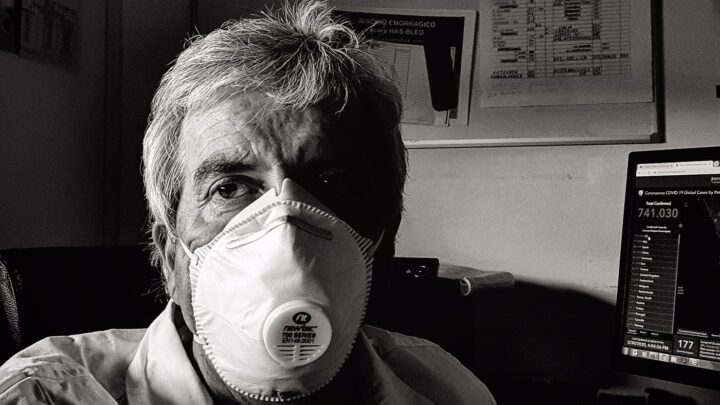
For many physicians, the word “leadership” brings to mind hospital CEOs, department heads or policy-makers in government offices. While those in formal management roles certainly shape the healthcare landscape, the demands of modern medicine are redefining what it means to be a leader. Effective leadership is no longer a trait reserved for the few; it’s an essential skill for every physician.
Here, we’ll dive into the leadership qualities you’ll find useful as a physician, and how you can refine those skills to guide the future of healthcare and become an effective healthcare leader.
Essential leadership traits for physicians in 2025
The best healthcare leaders possess a blend of clinical knowledge and soft skills. This allows you to not only provide excellent patient care but also to inspire your team. Based on insights from the Sermo community, physicians can benefit from the following leadership traits:
Emotional intelligence
Emotional intelligence refers to the ability to observe your own and others’ emotions to guide your actions, an essential skill for leaders. This includes empathy, a component of emotional intelligence specifically referring to the ability to feel and understand another’s emotions.
Emotional intelligence may benefit physicians themselves in addition to the people who they’re tasked with leading. One review of existing studies found higher emotional intelligence in physicians was associated with lower levels of anxiety, stress and depression.
In an internal poll on Sermo where members selected the leadership traits that physicians should adopt more often, empathy and emotional intelligence took the lead with 57% of votes (Note: participants could choose more than one answer.)
One general practitioner in the community spelled out the importance of emotional intelligence. It allows physicians “to establish a better doctor-patient relationship, communicate effectively, and provide better care,” they write.
Strategic thinking
Strategic thinking involves seeing the bigger picture beyond immediate clinical tasks. Strategic leaders can anticipate future trends, identify opportunities for innovation and align their team’s efforts with the organization’s broader goals. This can include embracing innovation and technology, a quality that 43% of participants voted for in the Sermo poll.
Resilience
The healthcare field is demanding and often stressful. Resilient leaders can withstand pressure, bounce back from setbacks and guide their teams through challenging times with a steady hand.
Effective communication
Sermo physicians believe that clear, honest, and empathetic communication is the bedrock of effective leadership. 42% of participants in the Sermo poll selected communicating with transparency and clarity as a trait more physician leaders should possess. This includes everything from explaining a complex diagnosis to a patient to articulating a strategic vision to a diverse team.
Collaborative outlook
Modern healthcare is a team sport. Great leaders create an environment where professionals from different disciplines can work together seamlessly to achieve the best patient outcomes. In the Sermo poll, 45% of members voted for building collaborative, cross-disciplinary teams as a key trait.
When you hone these skills, it can enable you to connect with, influence and inspire others, whether you’re leading a small clinic team or an entire hospital system.
Navigating modern challenges as a healthcare leader
As a physician leader in 2025, you’re up against technological issues, hindrances to workplace wellbeing, financial pressures, and regulatory changes. These are some of the challenges you may face:
Technological disruption
From AI-powered diagnostics to the widespread adoption of telehealth, technology is transforming how care is delivered. Devices in any form can malfunction, as one neurologist on Sermo expressed frustration with. “Every time they update to fix one bug, the update ends up creating two more,” they shared.
Healthcare leaders are tasked with having backups in place should things go awry. One psychiatrist on Sermo shared advice gleaned from their IT department, “The IT experts stressed the need for redundant equipment and connectivity; disaster recovery plans and downtime procedures; appropriate system security; appropriate system monitoring to detect failures or misuse; and backup solutions such as standalone computers and paper documentation,” they write. “The above parameters would provide a contingency plan to avoid and manage EHR failures.”
While they may not fix glitches directly, the best leaders ensure that the tech they integrate serves the ultimate goal of improving patient care with as little risk as possible.
Workforce well-being
Physician burnout is a common issue, affecting 45% of the 7,643 physicians in a recent study. Healthcare leaders can help address the issue by prioritizing physicians’ mental health and retaining talented staff. This involves creating a culture that values work-life balance and provides adequate support resources, like counseling or peer support groups. Research suggests that implementing flexible work hours and providing childcare can help improve work-life balance.
Financial pressures
The current economic landscape of healthcare is complex. Leaders are tasked with managing rising costs and navigating shifting reimbursement models. This requires a strong grasp of financial principles and the ability to make tough decisions that balance fiscal responsibility with the commitment to high-quality patient care. Healthcare leaders facing financial constraints may benefit from focusing on cost-effective care models like value-based care, or partnerships for shared resources and collaborative funding, as noted in one study.
Policy and regulatory changes
Healthcare is a heavily regulated industry, for good reason. Physician leaders are tasked with keeping track of new mandates and adapting their practices accordingly. Many leaders play a crucial role in advocacy, helping to shape public health policy for the better.
However, this is often easier said than done, according to a U.S.-based family medicine physician on Sermo. “Unfortunately so much public health policy is mandated by whichever way the political winds are blowing, for better or for worse,” they lament.

What physicians want to learn from top leaders
As physicians understand the importance of leadership, they’d like to learn skills from those at the top. “Many physicians agree that their training left out essential areas such as personal finance, mental health, cultural competence, effective communication, and digital literacy,” a vascular surgeon on Sermo notes.
We polled the Sermo community to find out what skills physicians are most interested in gaining. The most commonly selected answer was “how to innovate while staying patient-centered,” chosen by 51% of participants (voters could select more than one response.) For example,even though it improved access, the implementation of telehealth raised concerns that virtual appointments are impersonal compared to in-person consultations. Striking a balance is not always straight-forward.
The second most common answer in the poll was “how to influence policy and regulation,” which 49% of participants selected. On a similar note, “how to drive change within broken systems,” came in third, with 46%. A GP from Nigeria shared their advice. “Public health awareness and campaign is the best way to advocate for public health policy and change,” they write. This could mean writing op-eds, serving on an advisor of a public health board or supporting community education campaigns.
Building your leadership skills: A physician’s roadmap
In order to find your place as a leader, it’s necessary to possess qualities like “management skills,” “the ability to listen and empathize,” and mediation skills, writes a GP on Sermo. Here are some steps you can take to build your capabilities:
- Seek out mentorship: Find experienced leaders you admire and ask for their guidance. A good mentor can provide advice, act as a sounding board and help you navigate the unwritten rules of your organization. Communities like Sermo are a great place to connect with mentors in your field.
- Pursue formal training: Many universities and professional organizations offer leadership development programs specifically for physicians, such as an MBA in healthcare management. These courses can provide a structured foundation in finance, strategy and operations.
- Start small: You don’t need to run a hospital to be a leader. Volunteer to lead a quality improvement project, chair a committee or mentor a junior colleague. This way, you’ll hone your skills in a lower-stakes environment.
- Develop self-awareness: Tools like the Myers-Briggs Type Indicator or a DiSC assessment can help you understand your own strengths and weaknesses. The more you understand yourself, the more effectively you can lead others.
- Practice active listening: Make a conscious effort to truly hear what your patients and colleagues are saying. The ability to listen and make people feel heard is a leadership skill applicable in any context.
Charting the future of healthcare together
From developing emotional intelligence to mastering strategic planning and financial management, the path to leadership is a demanding one. It requires a commitment to continuous learning and a willingness to solve problems.
Your peers across the globe are navigating the same challenges to effective leadership. Sermo allows you to connect with those physicians, share strategies, find mentors and offer support. By engaging with this global community, you can gain insights that will help you grow as a leader and shape a better future for healthcare.















